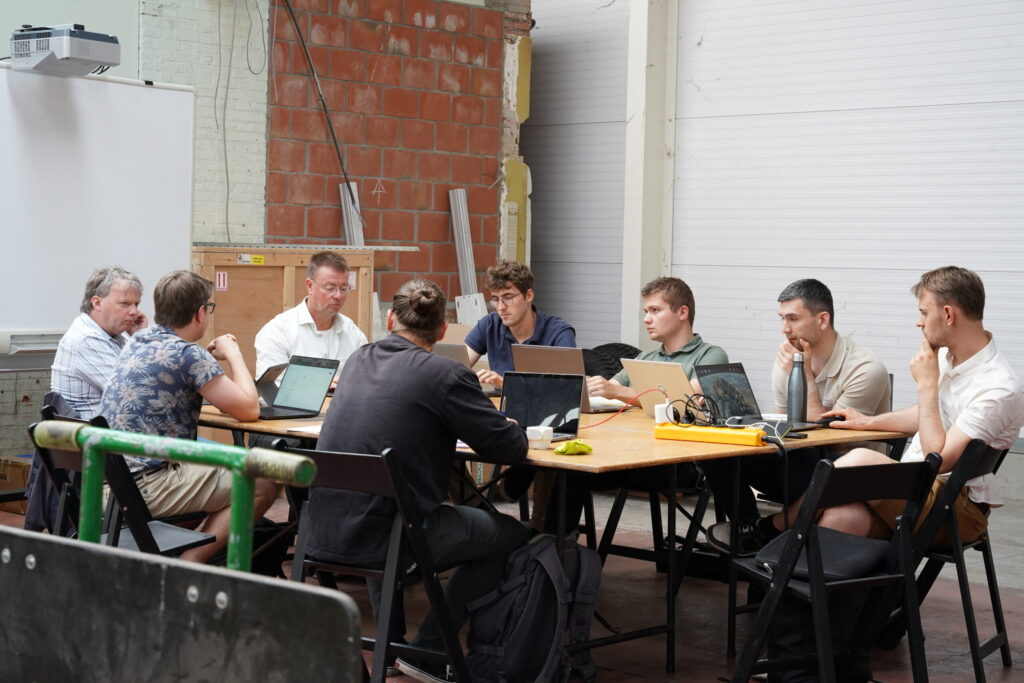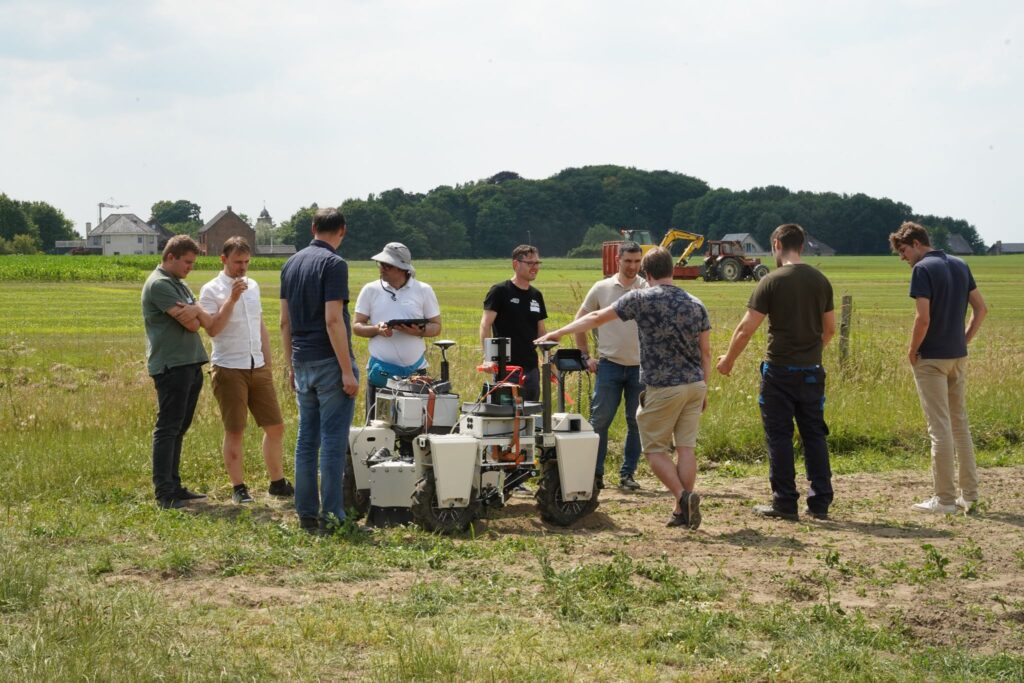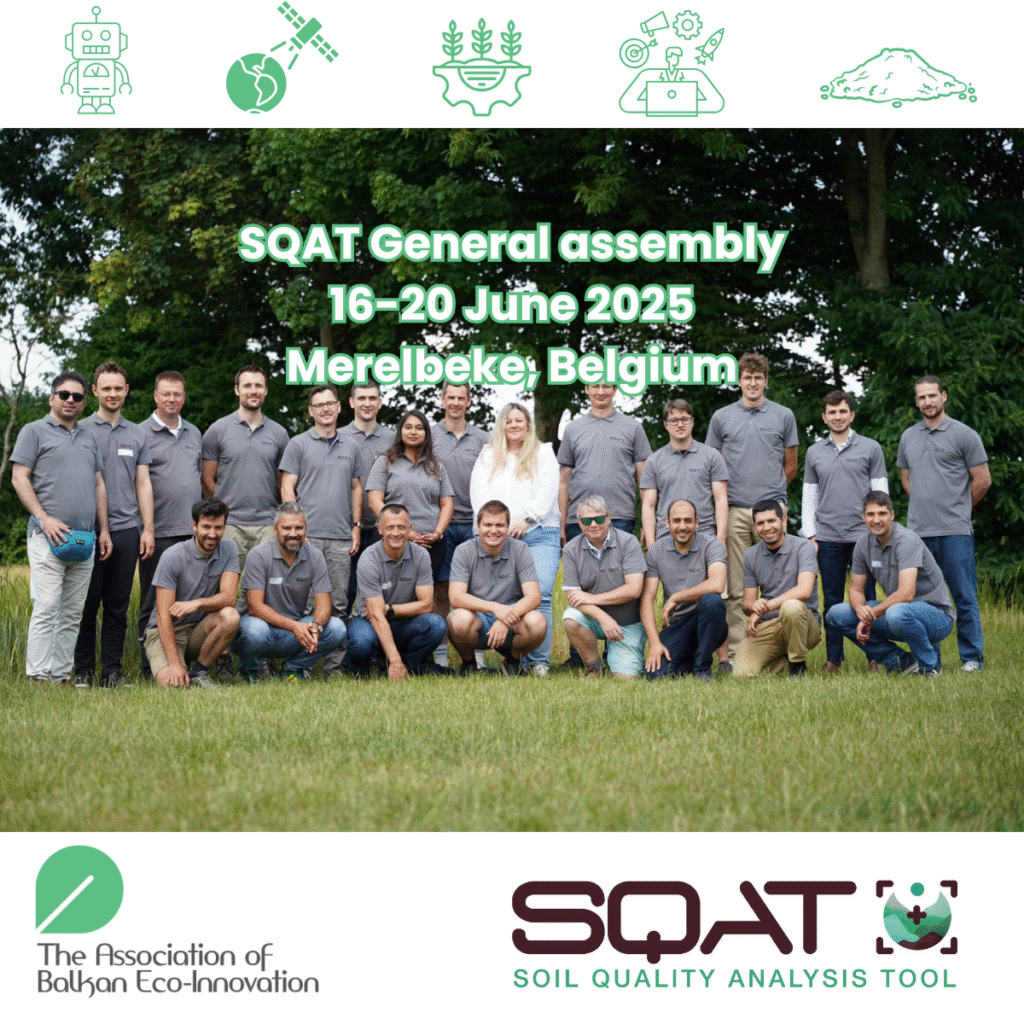From June 16–20, 2025, the SQAT consortium gathered in Merelbeke, Belgium, for a hands-on General Assembly hosted by ILVO (Flanders Research Institute for Agriculture, Fisheries and Food). The event brought together project partners from across Europe to evaluate progress, share insights, and test soil sensing systems directly in the field.
The SQAT project is coordinated by The Association of Balkan Eco-Innovation (ABE), which also leads stakeholder engagement, communication, and dissemination efforts.
Where tech meets soil: Connecting fieldwork and strategy
Set within ILVO’s research facilities and experimental plots, the meeting served as a collaborative hub where teams:
- Reviewed project progress and upcoming milestones
- Identified current implementation challenges and mitigation strategies
- Participated in practical field sessions to test the integration of SQAT technologies
- Engaged in parallel workshops focused on real-world use cases and technology adoption pathways
Key questions shaped the conversations:
- Which soil-monitoring technologies bring the most value?
- How can we ensure their usability and benefit to farmers?

From soil sensors to smart agriculture
SQAT is building the future of precision agriculture by making high-quality soil data accessible, reliable, and scalable. Field tests during the General Assembly allowed teams to validate system performance under real conditions and explore how advanced tools—powered by Copernicus and Galileo satellite data—can support more sustainable farming.
Participants also examined practical use of tools such as moisture probes, non-intrusive sensing methods, and integrated farm machinery that protect soil health while improving yields.

About the SQAT project
SQAT (Soil Quality Assessment Tool) is a Horizon Europe project that aims to:
- Improve access to reliable, high-resolution soil data for European farmers
- Combine advanced digital technologies, including Earth observation, to ensure cost-effective monitoring
- Enable new precision agriculture applications that reduce costs and environmental impact
- Translate research into real-world tools and bring them to market for wide-scale adoption
Stay connected with SQAT by following them on the social media (Linkedin, X) and by visiting their website.
